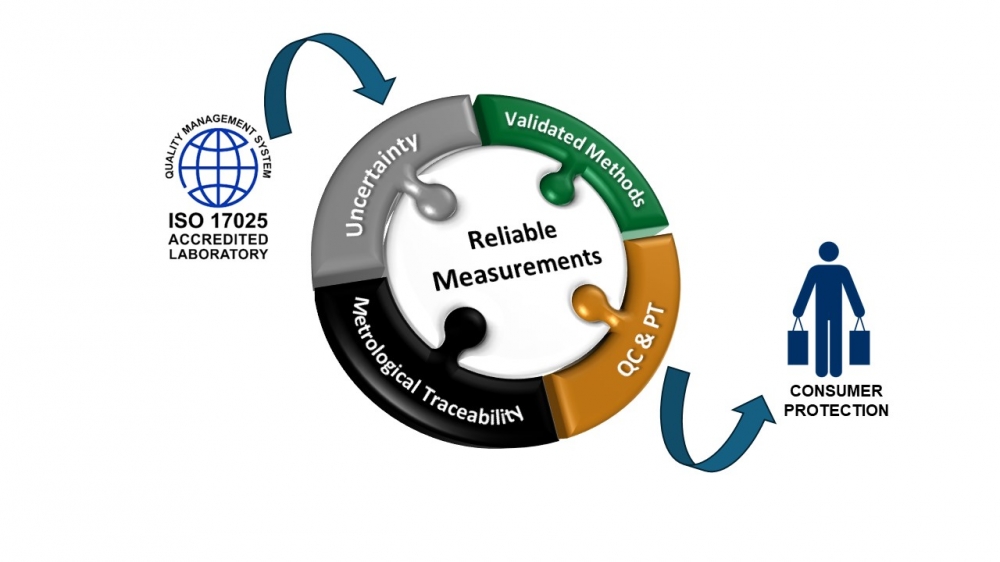JOURNAL 3096
Records of Agricultural and Food Chemistry
Year: 2024 Issue: 3 Special Issue: Abstracts 3rd. TCS, International Food Chemistry Congress February 29-March 03,2024 Antalya Türkiye
p.4 - 4
Viewed 1622 times.
-
Maria Fernades Whaley

- Desirée Prevoo- Franzsen
- Laura Quinn
- Caitlin Swiegelaar
- Nontete Nhlapo
- Deirdre Claasen
- Mare Linsky
GRAPHICAL ABSTRACT

ABSTRACT
The food sector is an essential component of the global economy. It is a highly regulated sector, requiring measurements to ensure product safety, quality, and compliance to protect public health and safety. The National Metrology Institute of South Africa (NMISA) recognizes this importance and has prioritized food and agriculture in its work program, to support food testing laboratories with these critical measurements. The absence of suitable matrix reference materials and proficiency testing scheme (PT) schemes impedes the validation and benchmarking of analytical methods by laboratories, most notably when new food regulations are introduced, new generation chemicals are being applied or when Maximum Residue Limits (MRLs) are changed. Consequently, this has also resulted in poor agreement between laboratory results and disputes between the inspection bodies and food producers. NMISA produces customized reference materials and PT schemes to assist with resolving these analytical challenges. The materials reflect the local food products, seasonal variations, and contaminant levels typical of the region. Two recent cases concerning South Africa’s Sodium Reduction regulation R214 in multiple food categories, and the determination of highly polar pesticides in plums and avocados, to meet new EU reduced MRLs will be described. In these cases, the production of custom matrix reference materials and the evaluation of PT performance has allowed the regulators and agricultural growers associations to address the possible sources of measurement result discrepancy, which has supported improvements in the implementation of national health promotion strategies and consumer protection.
KEYWORDS- Sodium reduction regulations
- pesticide residues
- customised proficiency testing